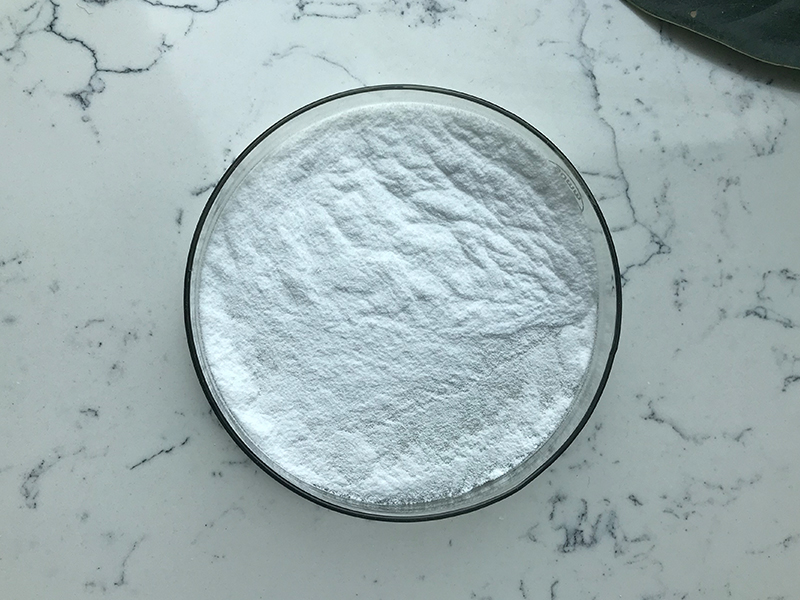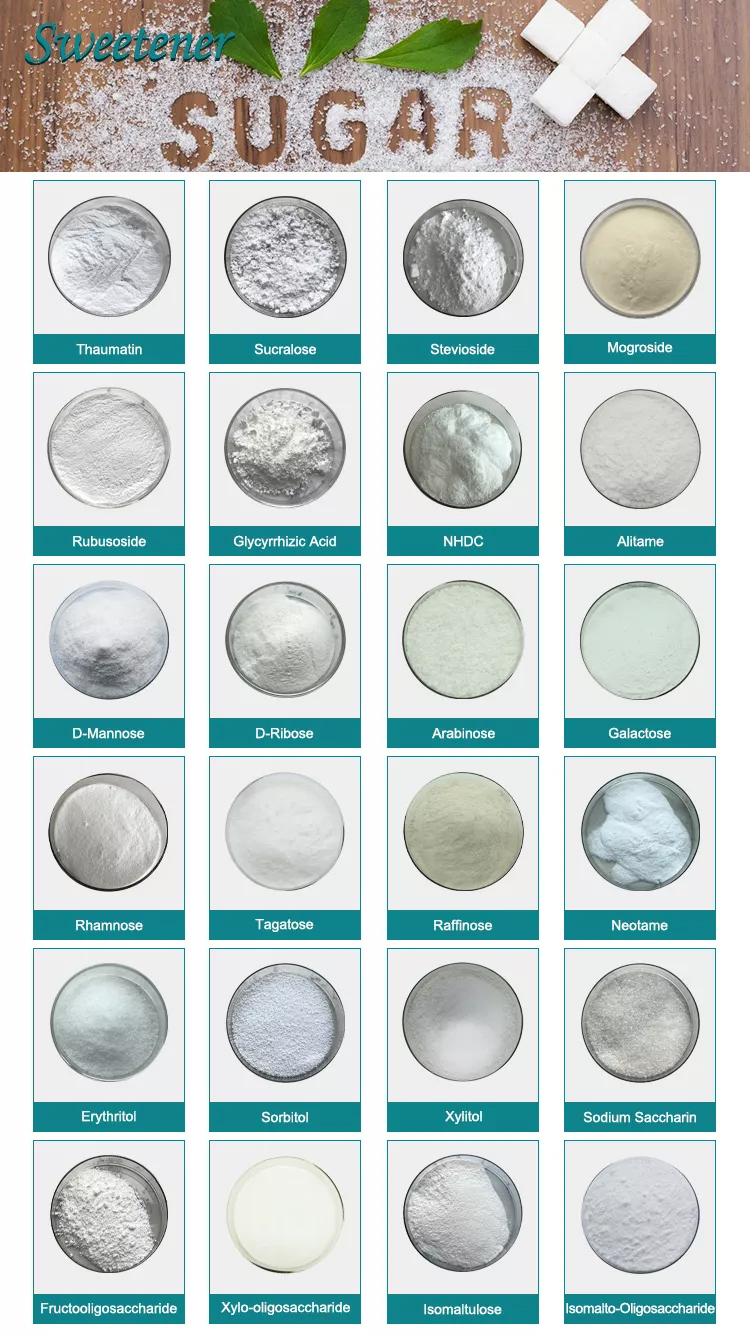Neotame is a non-nutritive sweetener that is a derivative of aspartame. It was approved by the U.S. Food and Drug Administration (FDA) in 2002 as a general-purpose sweetener and flavor enhancer. Neotame is approximately 7,000 to 13,000 times sweeter than sucrose (table sugar), allowing for its use in very small amounts to achieve sweetness.
Here are some key points regarding the efficacy and effects of Neotame:
1.Sweetness and Taste:
Neotame is known for its intense sweetness, allowing for the use of minimal amounts to achieve the desired sweetness in foods and beverages.
It has a clean, sweet taste without the bitter aftertaste that some other artificial sweeteners may have.
2.Caloric Content:
Neotame is non-nutritive, meaning it provides negligible calories. This makes it a suitable option for individuals looking to reduce calorie intake or manage their weight.
3.Stability:
Neotame is heat-stable and remains sweet even at high temperatures, making it suitable for use in cooking and baking.
It is stable under acidic or basic conditions, which contributes to its versatility in various food and beverage applications.

4.Metabolism and Safety:
Neotame is metabolized in the body to aspartame and a naturally occurring amino acid, phenylalanine. However, the amounts produced during metabolism are very small and unlikely to pose health concerns for the general population.
It is safe for consumption by individuals with phenylketonuria (PKU), a genetic disorder that requires the restriction of phenylalanine intake.
5.FDA Approval:
Neotame has been approved by the FDA for use as a general-purpose sweetener and flavor enhancer in a variety of food and beverage products.
6.Global Approval:
Neotame has also received approval for use in various countries around the world.
7.Use in Specific Products:
Neotame can be found in a range of food and beverage products, including desserts, soft drinks, gum, and other low-calorie or sugar-free items.
While Neotame is generally considered safe for consumption, it’s essential to note that individual tolerance to artificial sweeteners can vary. Some people may be sensitive to certain sweeteners or experience adverse reactions. As with any food additive, it’s advisable to consume Neotame in moderation and as part of a balanced diet. If you have specific health concerns or conditions, consulting with a healthcare professional or registered dietitian is recommended.
The adverse impact of Neotame
Neotame is an artificial sweetener that is a derivative of aspartame. It is considered to be a high-intensity sweetener, meaning that it is much sweeter than sucrose (table sugar), allowing for its use in very small amounts to achieve the desired level of sweetness. While Neotame has been approved for use in various food and beverage products by regulatory authorities, including the U.S. Food and Drug Administration (FDA), some concerns and criticisms have been raised regarding its potential adverse impact:
Allergic reactions: Some individuals may be sensitive or allergic to Neotame, experiencing symptoms such as hives, itching, swelling, or difficulty breathing. While such reactions are rare, they can occur in susceptible individuals.
Migraine headaches: Some studies and anecdotal reports suggest a potential link between Neotame consumption and the development of migraines in certain individuals. However, more research is needed to establish a definitive connection.
Controversial safety studies: Critics argue that the safety studies conducted on Neotame might not be comprehensive enough, and there are concerns about the long-term health effects of prolonged exposure. However, regulatory agencies, such as the FDA, have determined Neotame to be safe for consumption within established acceptable daily intake (ADI) levels.

Potential metabolic effects: Some research has raised questions about the impact of artificial sweeteners, including Neotame, on metabolic processes. This includes concerns about their potential influence on insulin sensitivity, blood sugar regulation, and the gut microbiome. However, further research is needed to fully understand these potential effects.
Taste perception and cravings: There is ongoing debate about whether the consumption of artificial sweeteners like Neotame may affect taste perception and contribute to increased cravings for sweet foods. Some studies suggest that artificial sweeteners may not fully satisfy the brain’s reward centers, potentially leading to overconsumption of calories from other sources.
It’s important to note that regulatory agencies have established specific guidelines and safety standards for the use of Neotame, and it is generally considered safe for consumption within recommended limits. As with any food additive, individuals with specific health concerns or sensitivities should consult with healthcare professionals. Additionally, research in the field of food additives and sweeteners continues, and our understanding of their effects may evolve over time.
